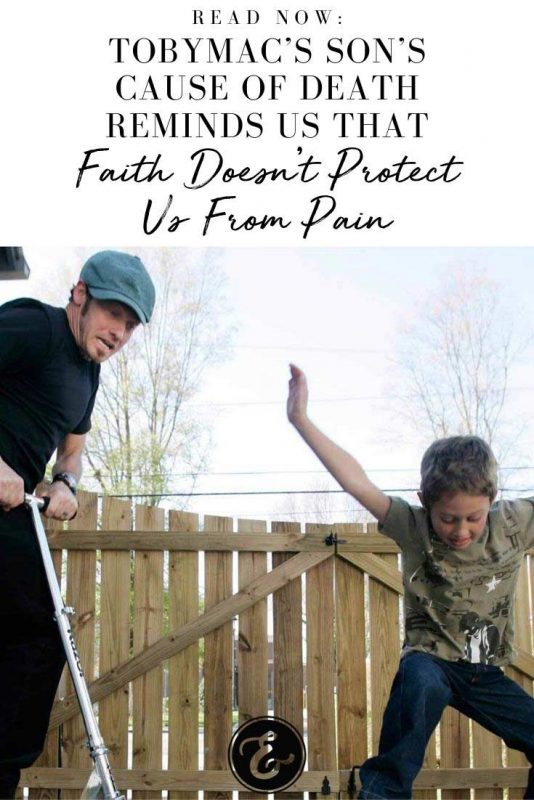My Husband Fought for His Nation, But Lost a Battle at Home

My family and I love going to Washington D.C. I’ve gone countless times since I was a kid, especially because my dad did so much work there when I was younger.
This past October, my husband and I took a trip to D.C. sans-kids. It was probably the best trip we’ve had since our honeymoon. He had this obsession with John F. Kennedy’s assassination, so we decided to map out all the homes in Georgetown connected to the family. Of course, the closet realtor in me also had Zillow pulled up as I wanted to know how much these historic homes went for—and what they looked like inside.
When we went to see the Declaration of Independence (something he had never seen), there was a foreign family in front of us with a hired tour guide who was detailing why the magic bullet theory was impossible. I watched my husband hang on to every word. It was adorable. Of course, we ended our trip with a visit to Arlington, something we always do when we visit D.C. I stopped by The Women’s Memorial where my grandmother is buried, as she served in the Women’s Auxiliary in World War II. Last stop was—you guessed it—JFK’s gravesite. It was a perfect weekend.
Another Trip to Arlington
Recently I was in Arlington again. But for a reason I never imagined. Our car pulled up to 12 pristine white uniforms that silently, perfectly, beautifully, marched to the car in front of us and removed my husband’s ashes and his flag from the car. We stood together as they reverently kept their eyes on the flag while walking under the awning to place his ashes on a table.
The 12 uniforms took their places around him. There were three single chairs in front of a table that my boys and I were directed to take. These perfect uniforms slowly unfolded his flag and held it over his remains as the chaplain spoke. He reminded us that no matter the circumstance, those that have placed their faith in Christ are in heaven waiting for us; I find myself thinking how grateful I was that he knelt next to the bed the day before we lost him and sobbed while he asked God for forgiveness for all his mistakes. That was six months ago; I thought we would be less emotional today. We weren’t.
I forgot how incredibly moving a military ceremony always is. Then, the flag was folded. The precision, the way they communicated without sound, the reverence to the task at hand was breathtaking. I was then directed to pick up his remains and hold him for the final time as we walked to the niche and placed him inside. A final prayer was said, and it was over.
I found myself standing there, wanting to watch them put the cover on, to be sure he was in and secure. I’m not sure why I felt that way; I know it’s not really him that is inside of that wall. Part of me wanted to tell him that I loved him one last time, to tell him that we would be okay. The other part of me wanted to throw something, to scream at him for leaving us. I just stood there unsure of what to do next. This was really it? This is how we end? It’s probably a good thing the chaplain was still there, as it forced me to contain all of it for the sake of my children. As we drove away that day, I found myself watching all the tourists coming in to walk around and see Arlington. I longed to be them again. I longed to rewind time to when I was just a tourist.
I forgot how incredibly moving a military ceremony always is. The precision, the way they communicated without sound, the reverence to the task at hand was breathtaking.
This Treatment Is Not Fair
What we were forced to endure is not fair. I can see so clearly now over the years how he deteriorated. Our counselor at church saw the problem and sent him for professional help. I know now that he suspected he had bipolar disorder. However, the medical professional who was assigned to my husband would say later that he seemed “fine.” He was never fine. I used to joke with him that he had man-PMS. I got so accustomed to it that I didn’t realize there was a real problem until the end.

Two days before he died I saw something in him I hadn’t seen before—extreme paranoia. It was at this moment I knew something was really wrong and that is when I went digging through his wallet to find the appointment card for his doctor so I could look him up. According to the card, the doctor had seen him just one week before. A few times after counseling he would talk. Not much, but more than once he had told me that the doctor didn’t seem to be listening. He kept saying he just wanted to know what was wrong with him.
As I began looking up the doctor online, I saw it. The practice had a 1.8 out of 5 Google rating. As I read the reviews I saw a pattern. Mostly active duty military and their families said it over and over: “I’m not being listened to,” “terrible attitudes,” “lack of caring.” A 1.8! How is that acceptable care for our service members? Do we refer them out to the lowest bidder? The suicide rate among service members is higher and steadily increasing when compared to the rest of the American population. We know we have a problem—yet proactive, compassionate care is rarely ever provided.
Our Service Members Deserve the Best Care
I did more research and found the military’s report on suicide. Do you know they actually pat themselves on the back because “most” of those that commit suicide don’t have a diagnosed mental disorder? As in, they must have just snapped one day. But no, they aren’t diagnosed because the doctors assigned aren’t listening. Or, service members don’t seek help because they know they will be medically retired if they are found to be unfit. So really, they can’t even seek help. They can’t risk losing their means to support their family. They can’t be seen as weak. These are the options military members are being presented: either be brushed off by sub-par care or lose your career. No pressure.
This must change. They should have the absolute best care out there. They give so much to their country, sometimes all of themselves. Why are we not giving them all the support they need? Why didn’t I know that if he was too weak to find help, I could have done something? It’s not fair that all my boys have left of their father is a chest of his things and a folded flag on behalf of a … “grateful nation.”
Below are resources on mental health care and wellness for veterans and active service members:
—Home Base | Veteran and Family Care
—U.S. Department of Veterans Affairs
—National Alliance on Mental Illness: Veterans and Active Duty
—Defense Suicide Prevention Office
—Mental Health First Aid | Veterans and Military
—

For more encouragement during life’s hardest moments, read here:
The Seesaw Aftermath of Losing My Husband to Suicide
3 Things to Hold on to When You Are Barely Holding On
Grit and Grace: The Official Armor of a Military Wife
Are You Suffering From PTSD? Here’s How to Know and Get Help
TobyMac—Heartbreak to Hope, Healing Through Music
Don’t miss these popular articles:
100 Things a Grit and Grace Woman Believes
Now You Can Find Purpose in the Midst of Your Troubles
Tired? Overwhelmed? 4 Guilt-Free Reasons to Say “No”
Just Because She’s Pretty, Doesn’t Mean You’re Not
#gritandgracelife
You’ll love this podcast episode from This Grit and Grace Life: Hardship Hit This Singer’s Life and She Chose to Fight! with Cameron James Pt. 1 – 048
and don’t miss part two:
Hardship Hit This Singer’s Life and She Chose to Fight! with Cameron James Pt. 2 – 049


